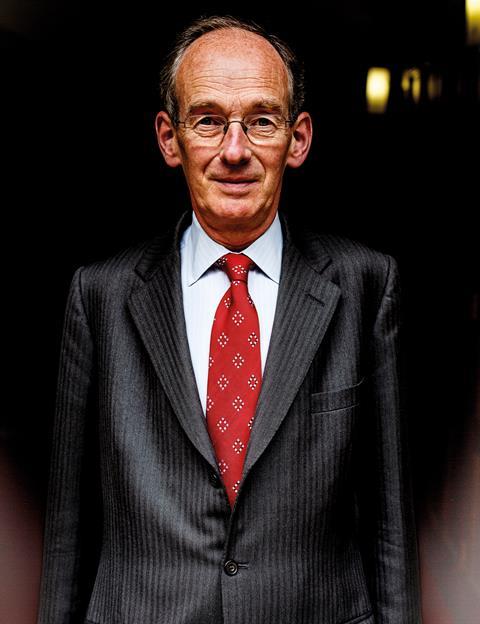A major cultural shift is needed to ensure greater openness in the family courts of England and Wales. So said the senior family judge, Sir Andrew McFarlane, in a report last Friday. I wholeheartedly agree with him.

Although journalists can now attend private family hearings, they are unlikely to know whether a case is of any interest until they set foot in the courtroom. The parties are not allowed to tell us about the proceedings, even if they want to, and cases are not listed in a way that allows us to identify them. And by law, we are not allowed to report cases involving children.
It’s true that some judgments are anonymised and released for publication, but vanishingly few. Although the family court dealt with 225,000 cases last year, the number of published judgments fell from 222 in 2015 to 87 in 2019.
After McFarlane took over as president of the High Court family division three years ago, he decided to wrench the topic of transparency out of the ‘too difficult’ box and take on the doubters. In his report last week McFarlane said, ‘The time has come for accredited media representatives and legal bloggers to be able, not only to attend and observe family court hearings, but also to report publicly what they see and hear.’
Crucially, though, these hearings will not be open to the wider public. The anonymity of children and family members must be maintained, he insisted, and intimate details of their private lives must remain confidential.
In the past, McFarlane explained, transparency was seen as a binary option: should family courts be open to press and public or not? But that, he now accepts, was the wrong question. The benefits of responsible reporting can be enjoyed without jeopardising the confidentiality that court users reasonably expect.
Like all compromises, this poses challenges. Who can be let into court? Ultimately, that will be a matter for the judge – and making fine judgements is what judges are used to doing. McFarlane himself excluded representatives of foreign news organisations from a recent series of high-profile hearings because of t he difficulties of enforcing reporting restrictions abroad.

The current rules allow ‘duly accredited representatives of newsgathering and reporting organisations’ to attend family hearings. I don’t think that definition applied to me when I observed some cases a few years ago, but I had permission from each judge, so all was well. And nowadays I would probably be included in the category of legal bloggers – defined as ‘duly authorised lawyers attending for journalistic, research or public legal educational purposes’.
For reasons I have never fully understood, reporting restrictions do not apply when family cases reach the Court of Appeal. Appeal judges do not normally hear oral evidence and the proceedings are easier to manage. But the proceedings are just as likely to be confidential.
It is fortunate, though, that appeals are open to press and public. As McFarlane candidly admitted, ‘cases which have rightly been highlighted as causing concern have only come to the attention of the media by being heard in public on appeal. Had an appeal not taken place, it is unlikely that the public (and the court system) would have become aware of what the various appeal judges held were significant judicial errors’.
But if this was all so easy to fix, previous attempts over the past 30 years would not have failed. ‘The voice of children and young people on this issue is strong and clear,’ McFarlane wrote. ‘They do not wish to have their personal information and the detail of their lives made public.’ That view is shared by some lawyers and social workers. The more information there is in an anonymised judgment, they say, the easier it is to crack.
Another problem is that judgments may contain detailed accounts of abuse suffered by children. Rulings may be picked up and circulated online by those with a perverted interest in such things.
But these problems are not insuperable. Anonymisation can be made more effective and less burdensome for judges. A detailed account of abuse can be replaced by a short summary. There will always be risks from journalists and bloggers – but in the past they have rescued judges from inadvertent disclosures.
Most of the work done in the family courts is not open to outside scrutiny or appraisal. Parents deprived of their children and victims of domestic abuse have complained anonymously to reporters. But these reports are impossible to check and, if necessary, correct. As McFarlane acknowledged, this sort of thing is bound to lead to a loss of public confidence and a perception that there is something to hide.
The president is determined to lead from the front. He is right to do so. If implemented effectively, his plans will increase public confidence without reducing confidentiality.































No comments yet